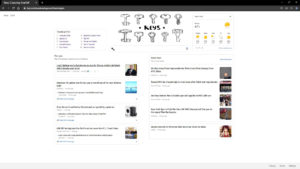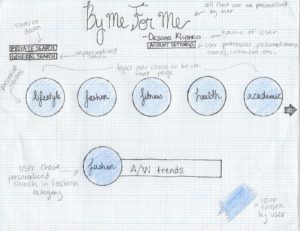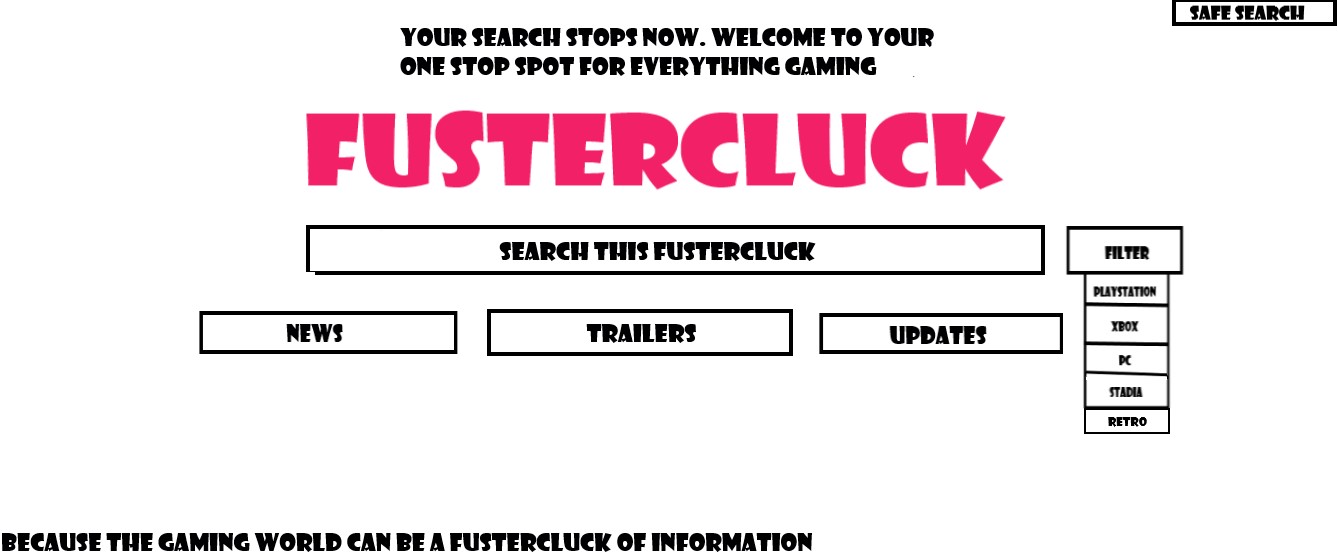If I were to design my own search engine it would look like a mixture of Yahoo’s homepage, which is populated with news and information. That news and information would be curated news and content chosen specifically for you based on your search results and topics you care about. It would act like the google discovery page and google news with topics you follow. I like google doodles and would love to have a new design daily as well. I would call this search engine KEYS (Keep Educating YourSelf)!

I would get people to use it by advertising it. The commercials would appeal to people by letting them know that they can always “keep educating themselves”. It would be important because it would get people news on a desktop as well as a mobile device. Currently Google’s Discovery Page is only accessible via mobile. Mobile devices tent to lead to addiction lately for myself. I have more control over random scrolling and can focus on tasks better on desktop devices.
Google Opt Out Feature Lets Users Protect Privacy By Moving To Remote Village by The Onion
🤣😆🤣 I remember explaining satire to my older mother, and sister, in which I just gave up. They still don’t understand that it’s a joke, that The Onion’s angle is making fun of things in a sarcastic way. I can understand why people can find a source like The Onion, and not understand that it is purely a joke, and label it fake news. Siting The Onion as the source is equivalent to siting worldstarhiphop.com as a source. Unfortunately, there are people among-st us who don’t understand sarcasm and would label The Onion as fake news, when in reality it’s comedy.
The Web Means the End of Forgetting
I started going online and was introduced to the internet at 11 years old. When I was introduced to the internet it was with the same notion as stranger danger. You never know who is watching you online. From a young age I have been using a pseudonym online. If yo
u type in my government name you only find professional things. When you type in my pseudonym, that’s where I actually exist online. My address was only publicly online due to Con Edison. As I’m thinking of possibly pursing politics, and as my friends go on with their ventures, I make it a task to not post anything that would jeopardize any of us. Pictures of us drinking or smoking etc. don’t exist. I don’t even trust cloud storage. I have a personal NAS, Network Attached Storage Drive(s), that I share with my family members.
After violent encounters in my neighborhood, I try not to post accurate current pictures of myself and post my locations. Majority of my pictures are dated so certain individuals won’t identify myself and others around me based off of neighborhood affiliations and retaliations.
Luckily, I haven’t had any negative online reputation situations yet. But I love the idea of the ability to take things offline. I believe Facebook and social media pages should be off limits for employers. Expiration dates is the reason why snapchat took off!
Data Mining: Finding Subversives with Amazon Wishlists
After learning about things done through Snowden, and after 9/11 I am okay with the government accessing digital data. The only thing horrible they’ll find on me is that I stream movies online, but so does everybody else! I generally don’t do anything I’m not supposed to a
nymore online. I stopped downloading music/movies. I stopped torrenting software etc. I only broke copyright laws due to lack of finances. Now that finances are accessible to me, I don’t mind paying for things.
The Lo(n)g Revolution: The Blogosphere as an alternative Public Sphere? By Anna Notaro
I agree with the quote by Raymond Williams, “general television through commercial advertising to centralized information and data-processing systems, the technology that is now or is becoming availablecan be used to affect, to alter, and in some cases to control our whole social process”. As the population grows, that population needs to be controlled, otherwise chaos would erupt. This is why ideas like net neutrality are even debated. I don’t think the government should intervene with the internet and throttle certain websites leaving them at a data cap. The web should be free.
I feel like only big companies would be able to afford the fees if any and small blogs won’t have a chance to grow or emerge. Imagine a web without Facebook or Netflix because the tech giants didn’t have funds to accommodate their sites. On the other hand, I feel like those same sites would be advertised for control of the mind. There is a really good documentary called Century of Self that talks about manipulation and control of the public.


